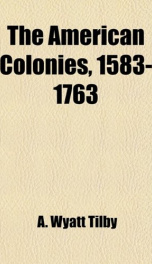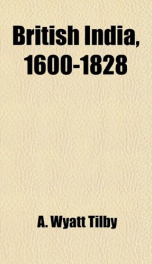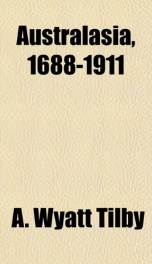the american colonies 1583 1763

Purchase of this book includes free trial access to www.million-books.com where you can read more than a million books for free. This is an OCR edition with typos. Excerpt from book: CHAPTER III THE ENGLISH SEA-KINGS : 1558-1600 With the loss of Calais and Guisnes in 1558 fell the last of the old English possessions abroad. ' The chief jewel of the realm,' as Queen Mary styled it, was taken by surprise ; and from that day to this England has had no continental empire. She has occupied isolated towns, as hostages from allies, as Havre from the Huguenots, Flushing and Ostend from the Dutch Republic, in the time of Elizabeth, and Dunkirk under Cromwell; the succession to the throne brought a long connection with Hanover; the vicissitudes of politics forced the armies of England to fight in all parts of the continent; islands have been taken, ceded, or lost, as Heligoland and Minorca : but there has been no serious attempt to build up a second empire in Europe, after the disastrous failure of the first. At the beginning of the reign of Elizabeth, nothing indeed seemed more improbable than that England should develop into a great power, especially into a great colonial power. The whole of the new world was claimed by Spain and Portugal ; they were in actual possession of a large part of it. They were secured in their possessions by decrees from Rome, which were respected by the greater part of Europe, and by a very large number of people in England itself. Both Spaniards and Portuguese had shown themselves invincible on sea and land. The names of Vasca da Gama, Albuquerque, Columbus, Cortes, and Pizarro, were justly world-famous. The treasures of the new lands poured into Madrid and Lisbon. By diplomacy and marriage Portugal was brought under the rule ofSpain. Internal dangers to the state there seemed none. Civil liberties had been crushed by Charles v. Heresy was stamped out by the Inquisition. The sentiment of the people, loyal, brave, and generous, wit...
Info about the book
Author:
Series:
Unknown
ISBN:
1112088121
Rating:
4.5/5 (4)Your rating:
0/5
Languge:
English
Users who have this book
Users who want this book
What readers are saying
What do you think? Write your own comment on this book!
write a commentif you like the american colonies 1583 1763 try:
Other books by this author
Do you want to read a book that interests you? It’s EASY!
Create an account and send a request for reading to other users on the Webpage of the book!




